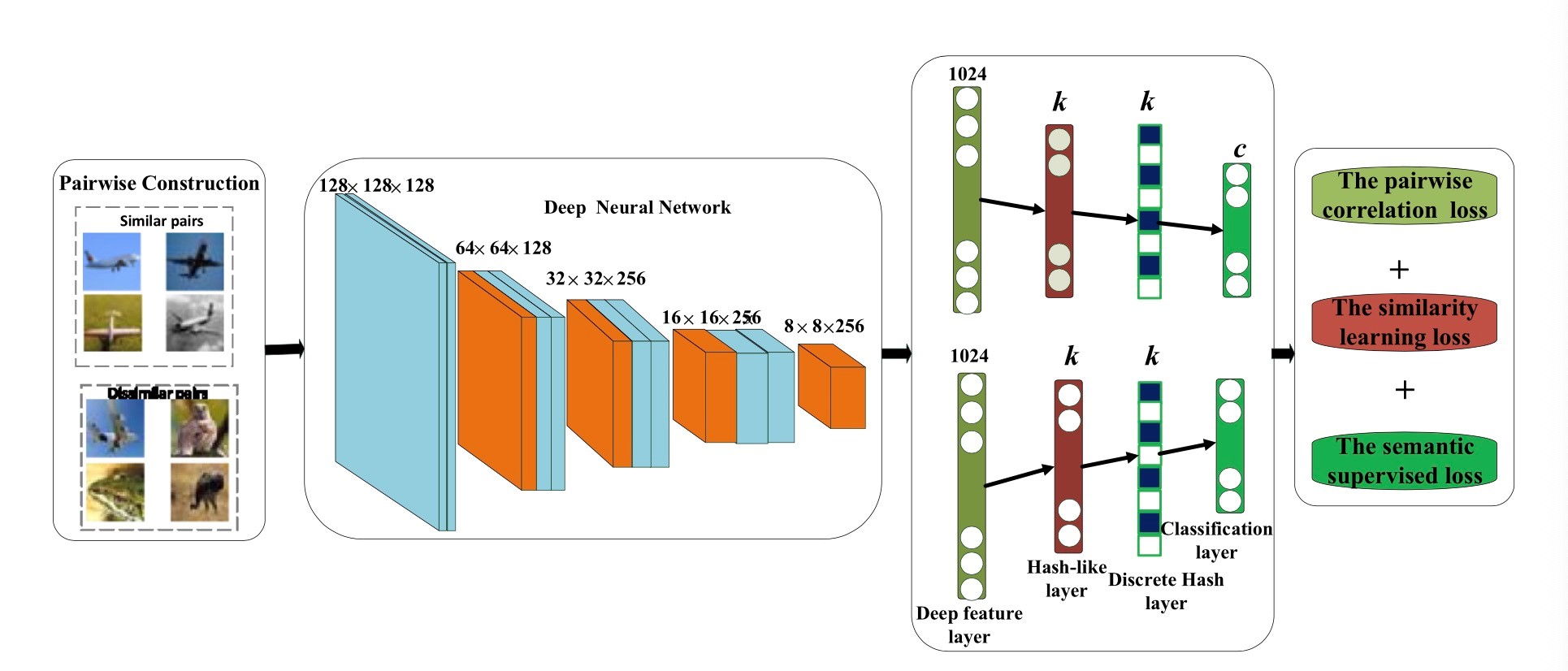Hashing technology plays an important role in large-scale visual search due to its low memory and fast retrieval speed. Most existing deep hashing approaches first leverage the continuous relaxation strategy to learn continuous approximate codes, and then transform them into discrete hash codes by separating quantization operations, which results in the suboptimal problem of hash codes and ultimately affects the performance of image retrieval.
To solve this problem, a research team led by Prof. Dr. LU Xiaoqiang from Xi'an Institute of Optics and Precision Mechanics (XIOPM) of the Chinese Academy of Sciences (CAS) propose a novel deep discrete hashing approach with pairwise labels, namely Pairwise Correlation Discrete Hashing(PCDH), to leverage the pairwise correlation of deep features and semantic supervised information to directly guide discrete hashing codes learning.
Firstly, they integrate discrete hash code learning and deep features learning in a unified network framework, which can utilize the semantic supervision to guide discrete hash codes learning.
Secondly, they design a novel pairwise correlation constraint to perform pairwise correlation learning of deep features.
Thirdly, they develop a novel pairwise construction module to mine good pairwise samples for discrete hash codes learning.
Extensive experimental results show that the proposed PCDH approach achieves superior performance over other recent state-of-the-art hashing approaches.
 The proposed framework of pairwise correlation discrete hashing (PCDH). (Image by XIOPM)
The proposed framework of pairwise correlation discrete hashing (PCDH). (Image by XIOPM)
(Original research article “Neurocomputing” (2020) https://doi.org/10.1016/j.neucom.2019.12.078)
Download: